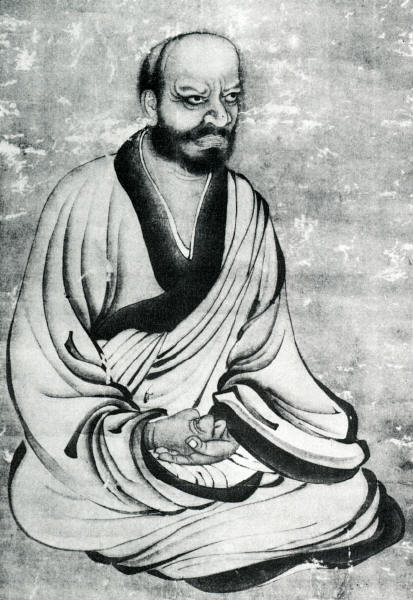Dharma Combat on:
[Wikipedia]
[Google]
[Amazon]
 Dharma combat, called or ''shosan'' in Japanese, is a term in some schools of
Dharma combat, called or ''shosan'' in Japanese, is a term in some schools of
 Dharma combat, called or ''shosan'' in Japanese, is a term in some schools of
Dharma combat, called or ''shosan'' in Japanese, is a term in some schools of Buddhism
Buddhism, also known as Buddhadharma and Dharmavinaya, is an Indian religion and List of philosophies, philosophical tradition based on Pre-sectarian Buddhism, teachings attributed to the Buddha, a wandering teacher who lived in the 6th or ...
referring to an intense exchange between student and teacher, and sometimes between teachers, as an occasion for one or both to demonstrate his or her understanding of the Dharma
Dharma (; , ) is a key concept in various Indian religions. The term ''dharma'' does not have a single, clear Untranslatability, translation and conveys a multifaceted idea. Etymologically, it comes from the Sanskrit ''dhr-'', meaning ''to hold ...
and Buddhist tenets. It is used by both students and teachers to test and sharpen their understanding. Practice is primarily seen in Zen
Zen (; from Chinese: ''Chán''; in Korean: ''Sŏn'', and Vietnamese: ''Thiền'') is a Mahayana Buddhist tradition that developed in China during the Tang dynasty by blending Indian Mahayana Buddhism, particularly Yogacara and Madhyamaka phil ...
traditions, particularly Rinzai Zen and the Kwan Um School of Zen. In both, it is a key component in the Dharma transmission
In Chan and Zen Buddhism, dharma transmission is a custom in which a person is established as a "successor in an unbroken lineage of teachers and disciples, a spiritual 'bloodline' ('' kechimyaku'') theoretically traced back to the Buddha him ...
process.
Zen practitioners will often have a sanzen, where the student has a face to face interview with their master. This is also called nishitsu, which literally means "entering the room" and refers to the student entering the room for private dharma combat.
An exchange is initiated when a master issues a challenge to members either individually or as a group. The master will use confrontation as an emotionally charged tool to push a student into immediate realization.
The Dharma combat usually appears to be in the form of a debate, with questions and answers that seem illogical to an outside observer. These encounters may involve dialogues with non-verbal elements as well as verbal. An exchange between combatants will often show disjointed comments, shouting and even slapping. These encounters, where the student's flaws in understanding or practice of dharma are exposed, have left students with a reluctance to enter the room used for combat.
As Peter D. Hershock asserts, the term itself provides insight into the risks of the encounter between student and master. Traditionally, Buddhism is known for helping others to attain peace and freedom from affliction. The usage of a martial term to describe enlightenment, he attests, cannot be accidental. The student is in danger of losing the ability to maintain their prior chosen heading, much the same as in a battle.
History
The first known recorded examples of Dharma combat occurred during the "Classical" period of Zen history. Stretching roughly from 765 to 950 C.E., this period saw the rise of many Zen masters whose work is still widely studied in modern Zen Buddhism today. One of these masters was Línjì Yìxuán (Rinzai Gigen in Japanese). Linji died in 866 and was the founder of the Linji school of Zen Buddhism during theTang dynasty
The Tang dynasty (, ; zh, c=唐朝), or the Tang Empire, was an Dynasties of China, imperial dynasty of China that ruled from 618 to 907, with an Wu Zhou, interregnum between 690 and 705. It was preceded by the Sui dynasty and followed ...
in China. Many examples of dharma combat can be found in the collection of sayings by and about Línjì. On occasions the Dharma combat of Linji even extended to physical handling, as in the following example:
In another example, he recounts a question from Ma-yu: "Of the eyes of the thousand-armed bodhisattva
In Buddhism, a bodhisattva is a person who has attained, or is striving towards, '' bodhi'' ('awakening', 'enlightenment') or Buddhahood. Often, the term specifically refers to a person who forgoes or delays personal nirvana or ''bodhi'' in ...
of compassion, which is the true eye?" Línjì repeats the question, adding "Answer me! Answer me!" Then, Ma-yu "dragged the Master down from the lecture seat and sat in it himself."
Notes
References
* * * * * * * * * * * * {{Buddhism topics Zen Buddhist philosophical concepts Kwan Um School of Zen Dharma combat